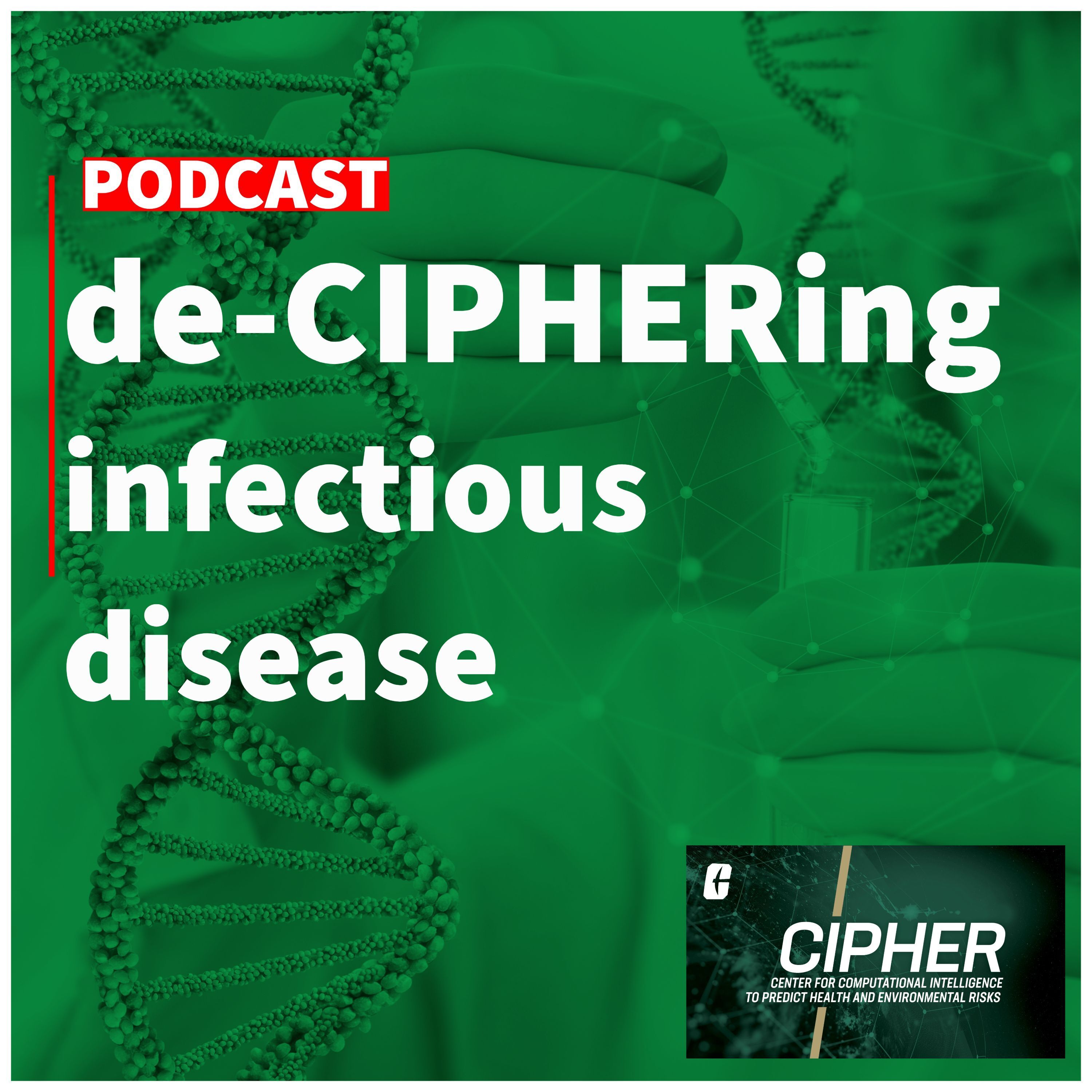
708
Downloads
12
Episodes
”de-CIPHERing Infectious Disease” explores the cutting-edge interdisciplinary research happening at UNC Charlotte’s CIPHER Research Center. Each episode features an in-depth interview with one of CIPHER’s researchers, allowing them to discuss their background, current projects, and the exciting team science approach they take to tackle complex issues at the intersection of health, environment, data science, genomics, infectious disease, and more. Host Ian Binns engages the researchers in accessible conversations that dive into the science behind their work while also highlighting the collaborative spirit and diverse expertise that makes CIPHER’s ”One Health” philosophy so powerful. From evolution and phylogenetics to machine learning, drug discovery, and preventing the next pandemic, ”de-CIPHERing Infectious Disease” offers listeners a window into the innovative solutions being pioneered to address global challenges.
Episodes
Tuesday May 21, 2024
Marine Biology with Dr. Adam Reitzel
Tuesday May 21, 2024
Tuesday May 21, 2024
Episode 3
In this episode, host Dr. Ian Binns interviews Dr. Adam Reitzel, a marine biologist and co-director of CIPHER at UNC Charlotte. Dr. Reitzel discusses what sparked his early interest in science, his journey into becoming a marine biologist despite growing up far from the ocean, and the fascinating world of sea anemones that are the focus of his research. He shares insights into the inner workings of his lab, the importance of mentorship, examples of surprising research findings, and how his work connects to the mission of predicting health and environmental risks through CIPHER. The conversation covers topics like host-microbe interactions, biodiversity, science communication, and the potential future role of AI in understanding and protecting the oceans.
Find out more at cipher.charlotte.edu.
Key Takeaways
- The impact of a mentor can be pivotal in shaping a career in science.
- Marine biology focuses on the study of marine invertebrates and coastal environments.
- A marine biologist conducts fieldwork, molecular analysis, and computational work to understand marine organisms.
- Effective mentorship involves listening, providing constructive feedback, and supporting individual passions.
- Understanding the health of organisms in oceanic environments is a key aspect of marine biology research.
- Organisms have complex immune systems that evolve quickly, similar to humans.
- Understanding biodiversity and environmental risks is crucial for One Health.
- Team science brings together experts to solve problems collaboratively.
- Curiosity and learning from others are essential for scientific progress.
- Research findings can sometimes be surprising and challenge existing assumptions.
- Depictions of sea anemones in popular culture can spark interest in marine biology.
- Artificial intelligence has the potential to enhance research and experimental design.
- Goals for the future include fostering new scientists and advancing host-microbe interactions.
- Engaging with the public and promoting science communication are important responsibilities for researchers.
This podcast was produced and edited by Zack Jackson
CIPHER is a proud part of UNC Charlotte who holds all rights to the content created by this podcast

No comments yet. Be the first to say something!